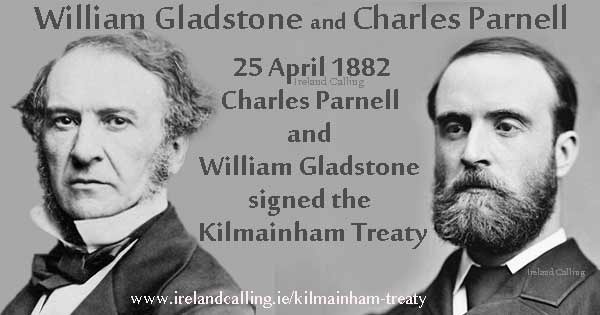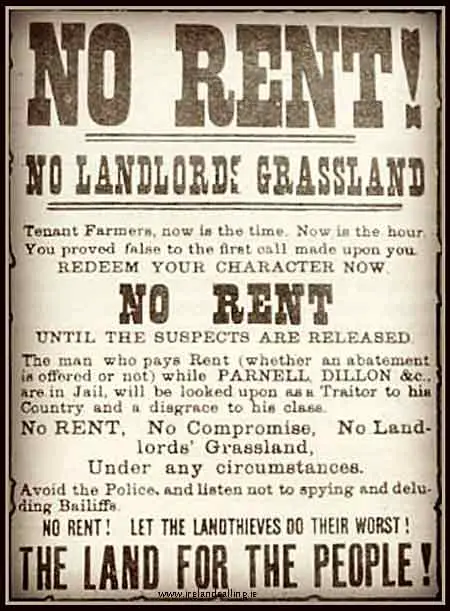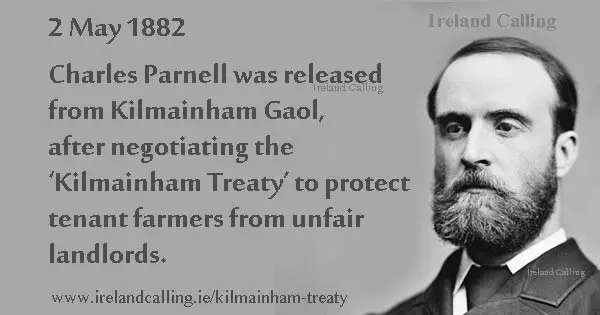The Kilmainham Treaty was no ordinary agreement. It was negotiated by Charles Stewart Parnell, the man known as the uncrowned king of Ireland, while he was still in jail.
It gave greater security to tenant famers and was signed by Parnell and British Prime Minister William Gladstone on 25 April 1882.

Land League members imprisoned in Kilmainham
Parnell and other members of the Land League (including Michael Davitt and William O’Brien) were imprisoned in Kilmainham Gaol, Dublin for opposing the British government and strongly criticizing the Second Land Act of 1881. This Act made some concessions to the tenant farmers known as ‘The Three Fs’:
- Fair rent — meaning rent control: for the first time in the United Kingdom, fair rent would be decided by land courts, and not by the landlords;
- Free sale — meaning a tenant could sell the interest in his holding to an incoming tenant without landlord interference;
- Fixity of tenure — meaning that a tenant could not be evicted if he had paid the rent
Parnell and the Irish Land League felt more should be done. They felt there should be regulations to adjust the rent if there were poor harvests and the tenant farmers were unable to pay their rent. They wanted farmers with rent-arrears, due to poor harvests, to be allowed to stay in their homes, and not be evicted.
No Rent Manifesto
Parnell produced a ‘No Rent Manifesto’ from Kilmainham Gaol, urging tenants to avoid the payment of rent until the prisoners were released.

While imprisoned, Parnell negotiated with Gladstone via Captain O’Shea (whose wife, Kitty O’Shea, he had an affair with). Parnell proposed that if there was an abatement for tenant rent-arrears, he would work towards reconciliation in the country when the Land League members were released from Gaol.
Gladstone agreed to these terms and on 2 May it was announced to the House of Commons that Parnell and the Land League members were to be released. Gladstone’s government passed the Arrears of Rent (Ireland) Act 1882, which cancelled £2m of accrued rent arrears.

Was it a Treaty?
Gladstone never called this agreement a ‘Treaty’ because a treaty is usually agreed by two states. Parnell called it a Treaty as it strengthened Irish nationalism and helped people believe that Ireland could become independent from Britain, especially as the negotiations happened while he was held in prison. Parnell became a national hero.
Unfortunately, four days after the Treaty, the Phoenix Park Murders in Dublin damaged much of the goodwill that had been created in Britain. Parnell strongly condemned these murders, but it showed he couldn’t fully control all the nationists.